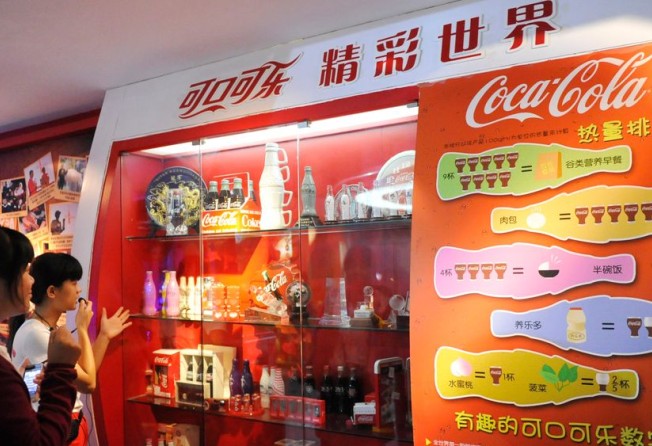Global brands get Chinese tastes

As mainlanders' living standards and consumption continue to improve, the nation's soft drinks industry has entered an era of rapid growth. Since soft drinks are popular on the mainland, demand has been expanding rapidly. This demand has been recognised by soft drinks manufacturer Coca-Cola, which offered to buy Chinese protein drinks maker Xiamen Culiangwang Beverage Technology in a US$400 million deal.
China Culiangwang earned 71 per cent of its profit from branded drinks in the fiscal year to April, last year, and 20 per cent from fresh and processed foods. Following the disposal of the beverage business, China Culiangwang would continue to develop its consumer products business, the company said in a stock exchange statement.
Coca-Cola will offer to acquire 100 per cent control of Culiangwang, which is owned by the Hong Kong-listed China Culiangwang Beverages Holdings. Xiamen Culiangwang is based in Fujian province, and has a wide range of products, including green bean, red bean and walnut variants of plant-based protein drinks sold under the brand China Green Culiangwang.
The proposed takeover is in line with Coca-Cola China's strategy to provide a diverse range of beverage products to Chinese consumers with plant-based protein drinks representing a growing beverage category on the mainland.
"China is an important growth market for us and this investment complements our beverage offerings there," says Petro Kacur, a spokesman for Coca-Cola.
This acquisition shows a return to Chinese deals for Coca-Cola after an attempt to buy the country's biggest domestic juice maker failed in 2009. Chinese regulators blocked the US$2.3 billion offer, saying that it would have negatively affected competition.
Xiamen has become a favoured investment destination for foreign companies, attracting interest from around the globe.
Swiss multinational food and beverage company Nestle doubled the number of its mainland research and development (R&D) units to further its understanding of Chinese consumers, ingredients and local cuisine; and to provide scientific and technological expertise to the rest of the business around the world.
The two new R&D units in Xiamen and Dongguan also support Nestle's joint ventures with Chinese food companies Yinlu and Hsu Fu Chi, and are working on projects with its R&D centres in other countries.
The Xiamen unit specialises in ready-to-drink beverages and supports Yinlu, China's leading producer of ready-to-drink peanut milk and ready-to-eat rice congee. Nestle's investment in Xiamen reflects its long-term commitment to advance nutrition and food science on the mainland.
Nestle's worldwide research and development network enables it to acquire local knowledge and use it on a global scale. The company's investment in China is the latest in a number of recent efforts to increase its R&D capabilities.
As Xiamen continues to attract investment from overseas, and as China's soft drink markets grows, there are signs of ample opportunities for more investment, research and development.